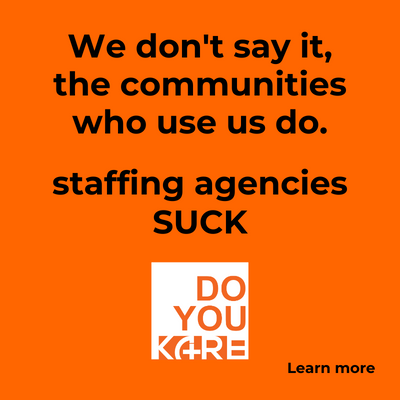By Steve Moran
Over the past number of weeks I have watched the Washington Post trash the senior living industry. They are doing it not for the purpose of making the world a better place or in an effort to protect older people but rather because they discovered it gets clicks and responses.
This means the publishers and writers of this series — Douglas MacMillan, Christopher Rowland, Todd C. Frankel, Yeganeh Torbati, Julie Zauzmer Weil, Peter Whoriskey, Steven Rich, Federica Cocco, and Alice Crites — are immoral, caring not at all about the residents of senior living, the families of those residents, or the people who do the hard work of providing that care.
If they were moral, they would still shine the light on industry problems — something that is painful but noble — but they would tell the whole truth rather than a distorted truth. They would talk about the millions of older people who live better lives because of senior living — people who are delighted with senior living.
They would talk about and tell stories of family members whose lives were falling apart because they were trying to care for a loved one at home even after it became an impossible task.
They would tell the stories of people who work in senior living and find tremendous satisfaction in serving others.
The Washington Post’s article will cause older people to miss out. It will cause older people to live worse lives, isolated lives. It will cause family members to continue to care for older family members at home to their own detriment.
A few weeks ago, I wrote the following rebuttal and submitted it to the Washington Post. It has received no response. You know how the press mocks guilty parties by talking about how, when they asked a good question, the response was no response?
The Washington Post is exactly the same. They are cowards!
Here is what I wrote:
Over the last few months, the Washington Post has published a series of articles about for-profit senior living that are horrifying. I write this as an industry insider who regularly produces content that is focused on making the lives of people who live and work in senior living better. I write this representing my voice and the voice of those companies, leaders, and team members who are making a real difference in the lives of older people and their families.
Much of what I say below will be hated by many in the industry I love so much.
As an insider, I am horrified by the stories about people who were hurt — older people who died before their time. There is simply no excuse for the things that happened. The individual senior living communities, operating companies, investors, and leaders made promises to residents, family members, the broader community, and frontline workers that they broke for the sake of money and expediency.
I wonder what goes through the minds of the leaders of these senior living companies and through the minds of the investment group executives when they read stories about how their organizations promised to care for and protect individuals and then failed.
There is simply no excuse.
The Industry
Recently, Kansas City Chiefs’ Rashee Rice was stupidly and recklessly road racing on the freeways of Dallas. He crashed into a center divider and caused a multi-car accident in which four people were injured. He compounded the sin by leaving the scene of the accident. He was very lucky that no one was seriously injured.
It perhaps took longer than it should have, but he has taken complete responsibility for his reckless actions. He has apparently answered every question the police asked him, straightforwardly and directly. He has said he will do whatever it takes to make the injured parties whole. He has said he will not fight the consequences.
This is the first thing senior living operators who have caused harm should do. It is simple, it is right, and it will, of course, horrify the attorneys, but at the end of the day, doing right is the most important thing.
The second thing these operators need to do is figure out how to make sure this will not happen again. And then they need to talk about how they are going to fix it. Each month, Brookdale publishes a report on their occupancy. It seems that a more important report would be a resident and team staffing and safety report.
What I Wish the Washington Post Would Say
Stories, even true ones, can be spun to make a point. The Washington Post has spun the story in a way to make all for-profit senior living operators look suspect. This is wrong and will hurt older people and will hurt workers who are doing their very best to care for residents. The truth is that there are many, many senior living companies that are doing a great job serving older people. These organizations and these communities have residents who are living amazing lives — much better lives than if they were living in their old homes.
They also are not telling you that sometimes, terrible things do happen in not-for-profit communities. They also are not telling you that most not-for-profit senior living organizations primarily serve well-off older people, not because the organizations are bad, but because it costs a lot to serve older people with care needs.
In many cases, the problem is less staffing levels and more lack of strong, caring, compassionate leadership. In one of the Washington Post stories, there were two caregivers on overnight who allowed a resident to wander from the building, and because she was unable to get back inside, she died. It is impossible to know if staffing levels were too low or not, because the two staff who were on duty didn’t do their job. If there had been four or six employees on duty not doing their job, the outcome would have been the same. Many of these organizations simply need better leadership.
The Washington Post blames algorithms used by Brookdale for the low staffing levels. This lets the company off the hook too easily and misses the bigger picture. “Algorithm” is simply another word for staffing standards. Every single company that has employees uses staffing standards: airlines, restaurants, fast food, hospitals, nuclear plants, schools. So algorithms in and of themselves are neither good nor bad.
The Post talks as if the problem is greed but at the same time notes that Brookdale has lost money nearly every quarter for years and years.
The Post‘s solution to these problems is more regulation and staffing standards. If this were likely to be effective, I would also be supportive. A look at the nursing home industry will quickly demonstrate that even though there are massive numbers of regulations, and in some states rigorous staffing requirements, they don’t work well. There are many, many problems, and no one — absolutely no one — wants to live in a nursing home. Many older people have made plans to terminate their own life rather than go into a nursing home.
If we need more regulation, it is at the state level. Mostly, though, what we need are owners and operators who care enough to make it better — who are willing to be responsible and accountable for the lives of the residents and team members they serve.
We also need the Washington Post to tell the whole story.









Good article!
Well said, Steve. Thanks for your journalism.
Excellent response Steve. Too bad they are too cowardly to print it. Thank you for your steadfast support of everyone in our industry , and for helping us all to get better.